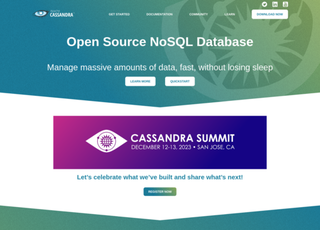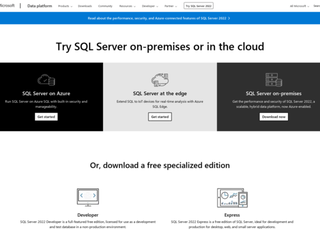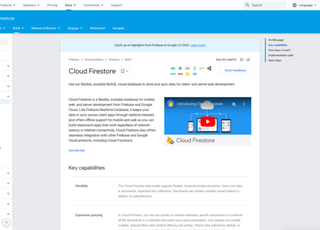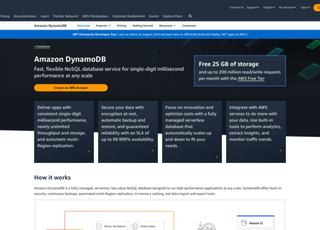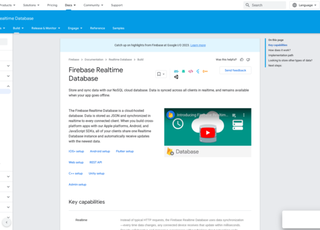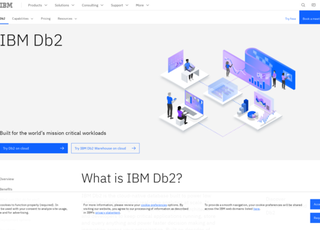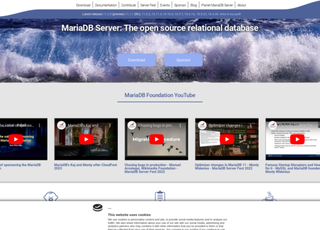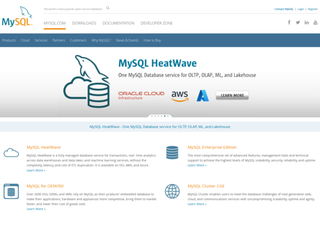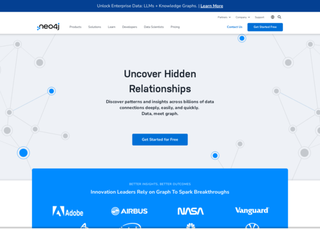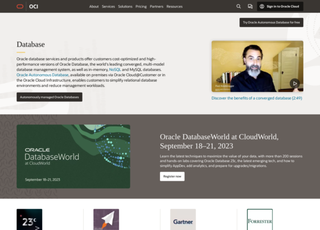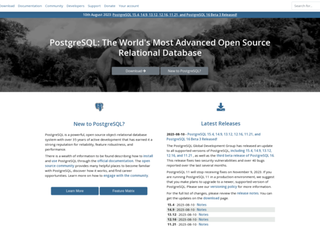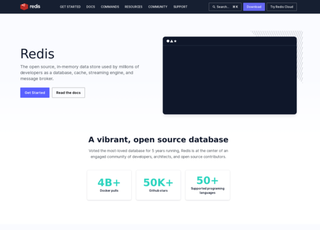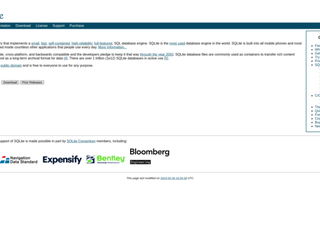MongoDB
https://www.mongodb.com/MongoDB
MongoDB is a popular open-source NoSQL database known for its flexibility, scalability, and performance. Unlike traditional relational databases that use tables and rows, MongoDB uses a document-oriented model, making it particularly well-suited for storing complex, hierarchical data structures.
Here are the key features and concepts of MongoDB:
Document-Oriented Storage
MongoDB stores data in BSON documents (a binary representation of JSON), which can contain many different key-value pairs, or key-array pairs, or even nested documents. This format is more expressive and powerful than the traditional row/column model, allowing for the storage of complex data types and structures directly.
Schema-Less
One of the biggest advantages of MongoDB is that it's schema-less. This means that documents in the same collection (equivalent to a table in a relational database) do not need to have the same set of fields or structure, and the schema can evolve over time.
Scalability
MongoDB offers high scalability through features like sharding (distributing data across multiple servers) and replication (providing redundancy and increasing data availability). This makes MongoDB an excellent choice for large-scale, high-traffic applications.
Powerful Query Language
MongoDB's query language is rich and flexible, allowing for complex queries, including document-based queries, range queries, regular expression searches, and more. It also supports aggregations and indexing for optimized query performance.
Aggregation Framework
MongoDB comes with an aggregation framework that allows you to perform complex data transformations and analysis directly within the database. This is akin to performing group by and having clauses in SQL, but with more flexibility and power.
Indexing
Just like relational databases, MongoDB supports indexes, and they are critical for performance. Indexes can be created on any field in a document, including fields within arrays and nested documents.
Replication and High Availability
MongoDB provides a replication feature called replica sets, which creates multiple copies of the data automatically. This ensures high availability and data redundancy.
Sharding
For horizontal scalability, MongoDB supports sharding, which distributes data across a cluster of machines. This helps in managing large data sets and high-throughput operations.
GridFS
For storing and retrieving large files such as images, videos, or large blobs of data, MongoDB offers GridFS, a specification for storing and retrieving files that exceed the BSON-document size limit of 16MB.
Community and Ecosystem
MongoDB has a large and active community. There's extensive documentation, numerous online resources, and a wide array of third-party tools and extensions available.
MongoDB Atlas
MongoDB Atlas is MongoDB's fully-managed cloud database service. It offers an easy way to host and manage MongoDB in the cloud, providing features like automated deployments, scaling, and backups. It supports various cloud providers, including AWS, Google Cloud, and Azure, allowing for flexibility in deployment options.
Security Features
MongoDB includes robust security features such as authentication, authorization, encryption (both at-rest and in-transit), and auditing. These features help in protecting sensitive data and complying with various regulatory requirements.
Change Streams
MongoDB provides change streams, allowing applications to access real-time data changes without the complexity and risk of tailing the oplog (operations log). This is particularly useful for building real-time analytics or triggers.
Transactions
In recent versions, MongoDB has introduced support for multi-document ACID transactions, similar to those in relational databases. This allows for performing multiple operations in a single, atomic transaction, ensuring data integrity.
JSON and BSON
MongoDB uses JSON-like documents for storing data. However, the actual format is BSON, which extends JSON to include additional types like Date and binary data. This makes MongoDB a natural fit for JavaScript and Node.js applications, as JSON is natively understood by JavaScript.
Flexible Deployment
MongoDB can be deployed on-premises, in the cloud (via MongoDB Atlas), or in a hybrid environment. This flexibility makes it suitable for a wide range of applications and infrastructure needs.
Rich Ecosystem
The MongoDB ecosystem includes various tools and services like MongoDB Compass (a GUI for database management), MongoDB Ops Manager (for operational tooling), and MongoDB Stitch (a serverless platform).
Use Cases
MongoDB is widely used in a variety of applications such as content management, mobile apps, real-time analytics, IoT devices, and e-commerce applications. Its flexible schema model makes it particularly well-suited for dynamic or unstructured data.
Programming Languages Integration:
MongoDB can be integrated with a wide range of programming languages, owing to its extensive driver support. These drivers are designed to facilitate communication between MongoDB and different programming languages, enabling developers to interact with MongoDB databases using the native syntax and paradigms of their preferred language. Here are some of the key programming languages and environments that have official MongoDB drivers:
JavaScript
Given MongoDB's use of JSON-like documents, it naturally pairs well with JavaScript, especially in Node.js environments. The MongoDB Node.js driver allows for seamless integration with server-side JavaScript code.
Python
MongoDB offers a Python driver called PyMongo, making it a popular choice for web applications (using frameworks like Django or Flask) as well as for data science and machine learning projects due to Python's strong presence in these fields.
Java
The MongoDB Java driver allows integration with Java applications. This is particularly useful in enterprise environments where Java is widely used for building large-scale applications.
C# and .NET
MongoDB provides a driver for C# and the broader .NET platform, enabling integration with various Microsoft technologies and supporting both .NET Framework and .NET Core applications.
PHP
The MongoDB PHP driver supports integration with PHP, a language commonly used for web development. This makes MongoDB a good fit for CMS, e-commerce, and other web-based applications built with PHP.
Ruby
The MongoDB Ruby driver allows Ruby applications, including those built with the Ruby on Rails framework, to interact with MongoDB databases.
Go
MongoDB's Go driver supports integration with applications written in Go (or Golang), which is known for its efficiency and concurrency support.
Scala
For applications written in Scala, especially those that leverage the Akka framework or perform data processing tasks, MongoDB offers a Scala driver.
Perl
MongoDB also provides a Perl driver, supporting legacy systems and new developments in this longstanding scripting language.
C++
For system-level or application-level software that requires high performance, MongoDB offers a C++ driver.
Swift
The MongoDB Swift driver enables integration with iOS and macOS applications, catering to the development of mobile and desktop applications on Apple platforms.
Rust
The growing popularity of Rust, known for its performance and safety, is supported by a MongoDB driver, allowing developers to build fast and reliable applications.
In addition to these official drivers, there are numerous community-supported drivers and third-party libraries that enable MongoDB integration with other languages and frameworks. This extensive support makes MongoDB a versatile choice, capable of fitting into a wide array of development ecosystems.
MongoDB's popularity stems from its flexible document model, scalability, powerful querying and analytics capabilities, and ease of use. It's a versatile database that can handle a wide range of data types and is well-suited for both startups and large enterprises. With continuous development and a strong community, MongoDB has become a go-to choice for modern application development.





















